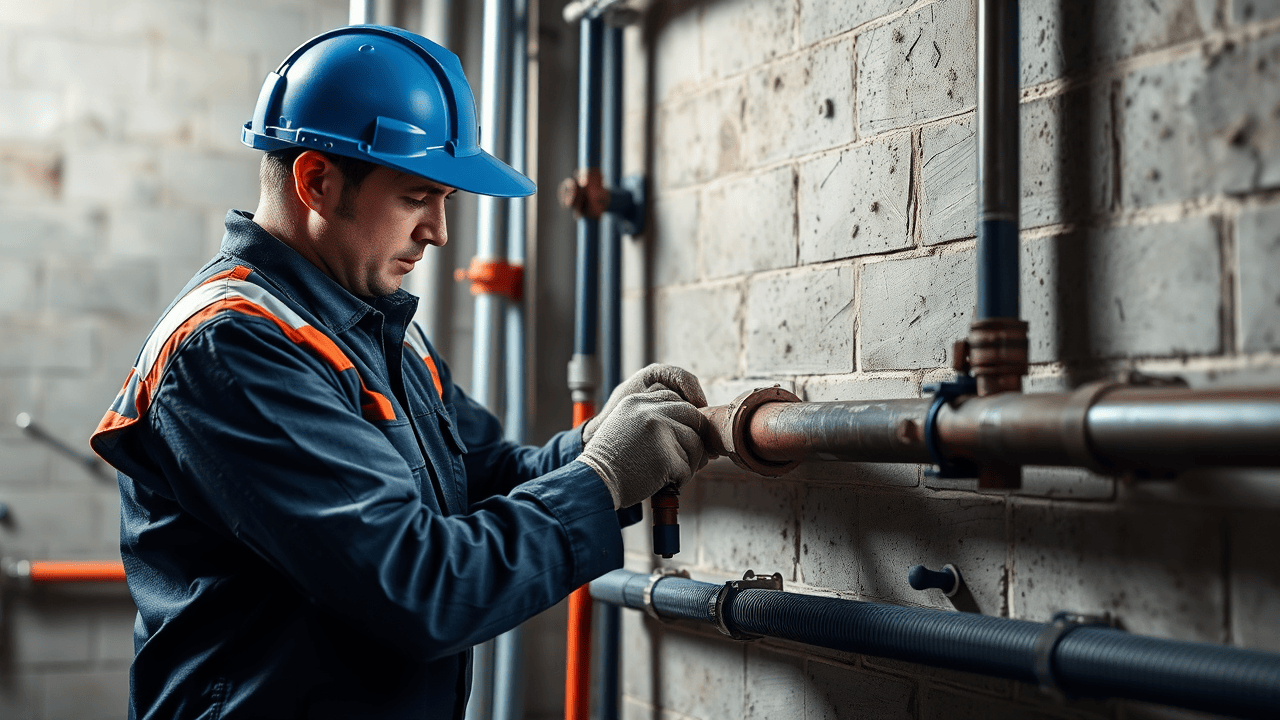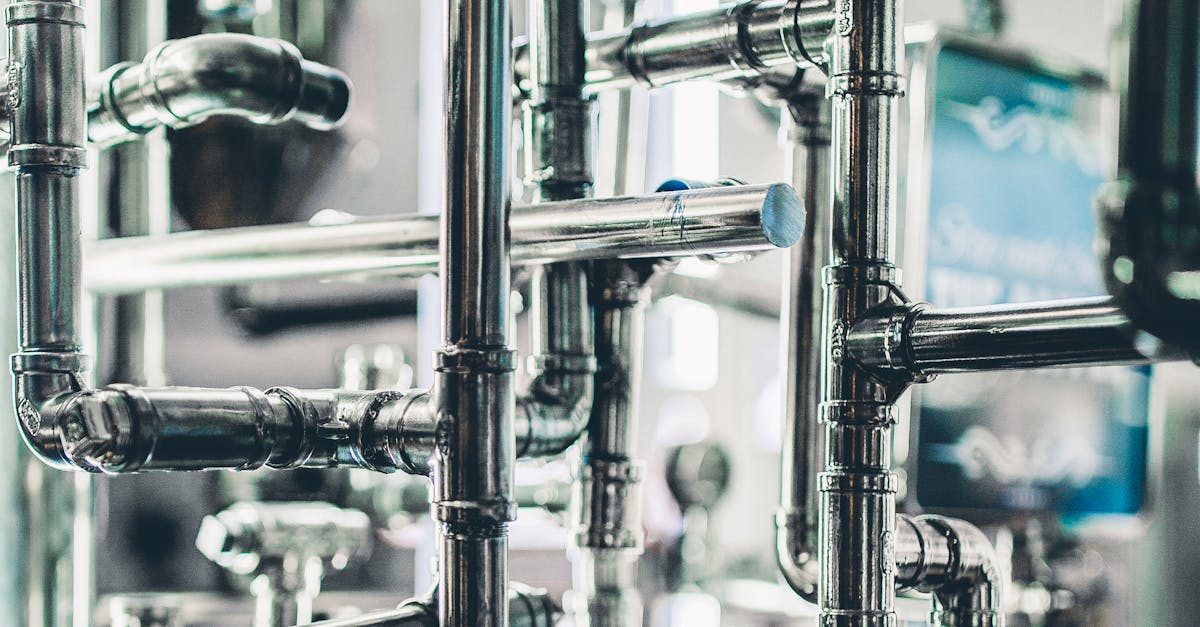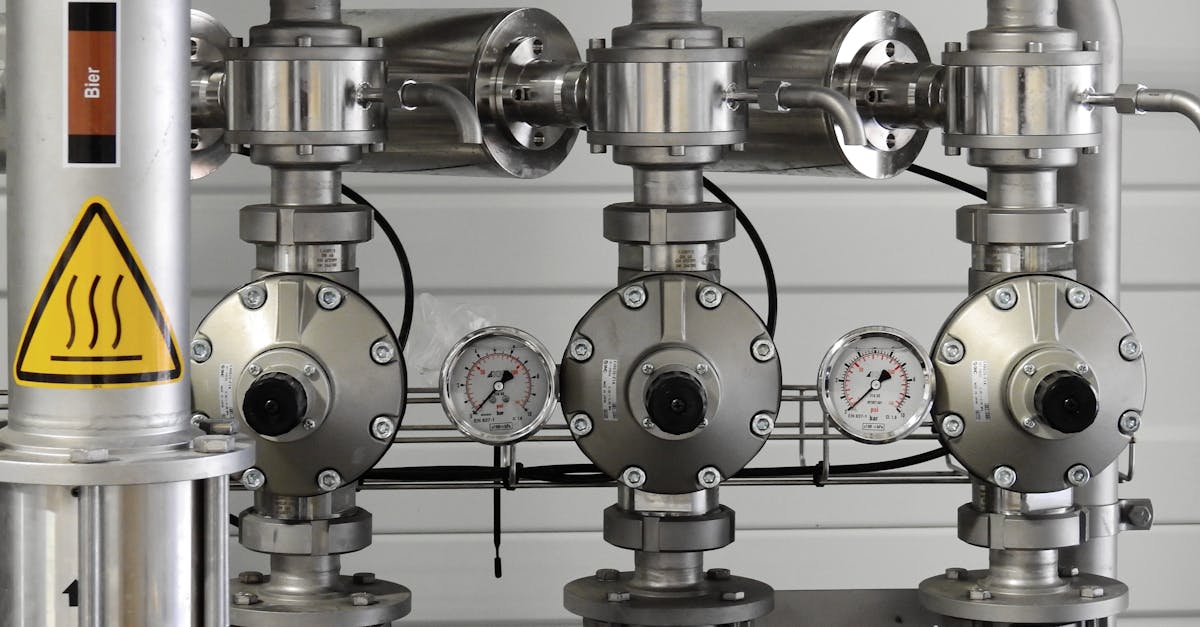
Replacing Damaged Pipes
Replacing damaged pipes requires a systematic approach to ensure the underlying issues are effectively addressed. First, the damaged section must be identified, which often involves excavating the area under the house. Once the pipe is exposed, the next step is to cut out the damaged section and prepare the ends for new pipe installation. Workers typically use specific tools to ensure clean cuts, minimizing the risk of future leaks. Finding a reliable service for "Pipe installation and repair near me" can streamline this process, providing professional assistance in pipe replacements.
After removing the damaged pipe, new pieces need to be fitted into place. The new pipes must be properly secured and connected, often using soldering or special fittings, depending on the material of the pipes involved. Once the installation is complete, testing the connections for leaks is crucial to ensure long-term performance. Proper backfilling of the excavated area also plays a role in preventing future damage to the pipes. This thorough approach not only restores functionality but also enhances the integrity of the plumbing system.
StepbyStep Replacement Process
When addressing the replacement of damaged pipes under a house, the first step involves identifying the specific area that requires work. This often starts with locating leaks or signs of water damage. Once the area is determined, the plumber will shut off the water supply to prevent further issues during the repair process. Next, the damaged section of the pipe is carefully removed using appropriate tools, ensuring minimal disruption to the surrounding structures. A suitable replacement pipe is then selected, often matching the existing material, and the fitting is secured properly to avoid future leaks.
After the new pipe is installed, the plumber will typically test the system by turning the water supply back on and checking for leaks at the joints. This step ensures a secure and functional connection. Proper insulation may be added to protect the pipes from temperature changes and environmental factors. Regular checks after installation can help maintain the integrity of plumbing systems. For those unsure about DIY repairs, searching for “pipe installation and repair near me” can connect you with local professionals who specialize in plumbing solutions and can provide expert assistance for more complex situations.
Preventative Measures for Pipe Longevity
Maintaining the longevity of your plumbing system requires regular inspections and proper care. One effective way to prevent potential issues is to insulate pipes, especially those located in cold areas like basements or crawl spaces. This insulation helps to prevent freezing and bursting during colder months. Additionally, routine checks for leaks or corrosion can catch small problems before they escalate into costly repairs. Homeowners should also be mindful of what goes down their drains. Avoiding pouring grease or large food particles into sinks can significantly reduce the risk of clogs.
Another crucial aspect of preventative measures is scheduling professional maintenance. Regular inspections by a qualified plumber can identify wear and tear early on. Homeowners should make it a habit to seek "pipe installation and repair near me" to find experienced professionals who can assess and service their plumbing systems. Keeping an eye on water pressure and ensuring that appliances are functioning correctly will contribute to a healthier plumbing system overall. Simple steps like these go a long way in prolonging the life of your pipes.
Tips for Maintaining Your Plumbing System
Regular maintenance of your plumbing system can extend the life of your pipes. Inspect for leaks or moisture around fixtures regularly. Look under sinks and behind walls in less visible areas. Clean faucets and showerheads to prevent mineral buildup, which can decrease water flow. Checking drains for clogs is also essential; using a drain strainer can help catch debris before it becomes a problem. For more extensive issues, consider searching for "pipe installation and repair near me" to connect with local professionals who can assist.
Maintaining the right water pressure is crucial for preventing damage to your plumbing system. High pressure can lead to leaks or bursts, while low pressure can indicate hidden issues like blockages. Installing a water pressure gauge can help monitor this vital aspect. Additionally, don't forget to insulate your pipes to prevent freezing in colder months. Routine flushing of your water heater can improve efficiency and prolong its life. Regular maintenance not only keeps your plumbing running smoothly but can also save you money in the long run.
When to Call a Professional
Homeowners often encounter plumbing issues that require specialized knowledge and tools. If the problem involves complex systems or requires extensive modifications, it is wise to seek professional help. Identifying the right moment to call a plumber can save time and money, preventing further damage to your home’s infrastructure. Researching options like “Pipe installation and repair near me” can connect you with skilled professionals experienced in complex plumbing repairs.
Some signs indicate the need for a professional plumber. Persistent leaks, unusual noises from pipes, or recurring clogs may suggest underlying issues that DIY solutions cannot fix. If you experience any of these symptoms, contacting a local expert can provide clarity and efficiency. Ensuring that plumbing systems function correctly is vital for home maintenance and overall safety.
Identifying Complex Repair Needs
Identifying complex repair needs in plumbing often requires a keen understanding of the intricacies involved. Homeowners might encounter issues such as persistent leaks, low water pressure, or unusual sounds coming from the plumbing system. These signs can indicate underlying problems that are not immediately visible, such as corroded pipes or extensive blockages. A thorough inspection by a trained professional can help diagnose these issues before they escalate into more severe complications.
In some cases, the complexity of the repair may necessitate specialized tools and expertise. Plumbers can assess the situation and determine whether it involves simple repairs or requires significant work, such as replacing entire sections of pipe. Homeowners searching for help may find resources online by looking for "pipe installation and repair near me," which can connect them with local professionals equipped to handle intricate plumbing challenges.
FAQS
What are the common signs that a pipe under my house needs replacing?
Common signs include unexplained water stains on walls or ceilings, damp spots on the floor, a decrease in water pressure, or unusual sounds like dripping or gurgling.
How do plumbers determine the best method to fix pipes under a house?
Plumbers assess the damage through inspection, which may include visual checks and using specialized tools like cameras to determine the extent of the problem before deciding on the best repair or replacement method.
What materials are typically used to replace damaged pipes?
Common materials for replacing damaged pipes include PVC, PEX, copper, and cast iron, depending on the location and specific plumbing requirements.
Can I perform pipe repairs under my house myself?
While minor repairs can be done by homeowners with some plumbing knowledge, it is often best to hire a professional plumber for major repairs to ensure safety and compliance with local codes.
What preventative measures can I take to prolong the life of my plumbing system?
Regular maintenance such as inspecting for leaks, insulating pipes, avoiding the disposal of grease and non-flushable items, and scheduling periodic professional inspections can help prolong your plumbing system's life.


